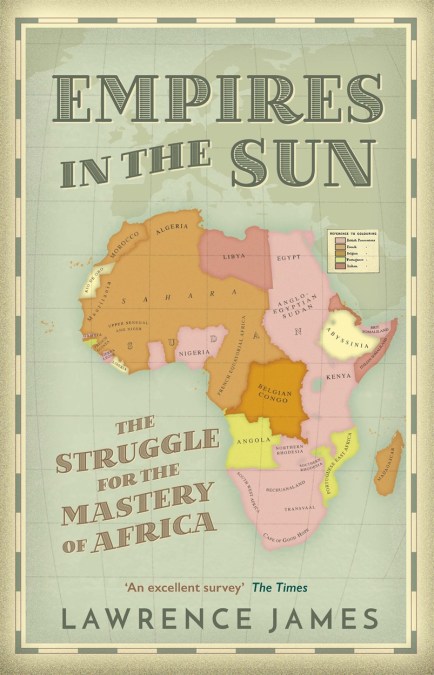In this compelling history of the men and ideas that radically changed the course of world history, Lawrence James investigates and analyses how, within a hundred years, Europeans persuaded and coerced Africa into becoming a subordinate part of the modern world. His narrative is laced with the experiences of participants and onlookers and introduces the men and women who, for better or worse, stamped their wills on Africa. The continent was a magnet for the high-minded, the philanthropic, the unscrupulous and the insane. Visionary pro-consuls rubbed shoulders with missionaries, explorers, soldiers, adventurers, engineers, big-game hunters, entrepreneurs and physicians.
Between 1830 and 1945, Britain, France, Belgium, Germany, Portugal, Italy and the United States exported their languages, laws, culture, religions, scientific and technical knowledge and economic systems to Africa. The colonial powers imposed administrations designed to bring stability and peace to a continent that seemed to lack both. The justification for occupation was emancipation from slavery – and the common assumption that late nineteenth-century Europe was the summit of civilisation.
By 1945 a transformed continent was preparing to take charge of its own affairs, a process of decolonisation that took a mere twenty or so years. Yet there remained areas where European influence was limited (Liberia, Abyssinia). Through inertia and a desire for a quiet time, Africa’s new masters left much undisturbed, and so this magnificent history also pauses to ask: what did not happen and why?
Between 1830 and 1945, Britain, France, Belgium, Germany, Portugal, Italy and the United States exported their languages, laws, culture, religions, scientific and technical knowledge and economic systems to Africa. The colonial powers imposed administrations designed to bring stability and peace to a continent that seemed to lack both. The justification for occupation was emancipation from slavery – and the common assumption that late nineteenth-century Europe was the summit of civilisation.
By 1945 a transformed continent was preparing to take charge of its own affairs, a process of decolonisation that took a mere twenty or so years. Yet there remained areas where European influence was limited (Liberia, Abyssinia). Through inertia and a desire for a quiet time, Africa’s new masters left much undisturbed, and so this magnificent history also pauses to ask: what did not happen and why?
Newsletter Signup
By clicking ‘Sign Up,’ I acknowledge that I have read and agree to Hachette Book Group’s Privacy Policy and Terms of Use
Reviews
He writes as well as ever and is a sure-footed guide.
[A] compelling, even-handed and masterful narrative
'The Second World War points back towards a colonial past in Africa, to bygone scrambles for imperial power. It also glances forward to decolonisation. This global conflict is at the centre of Lawrence James's excellent survey of African history from 1830 to 1990 . . . Empires in the Sun is a brisk, well-written and jaunty account of European empire-building in Africa . . . Intrigue and devious political calculations propel the fast-moving narrative . . . The book is a timely reminder of the complexity of international politics, and the nuanced balance of forces that have shaped our modern world'
'A brisk, colourful account of the past 200 years of African history . . . A good informative read'





